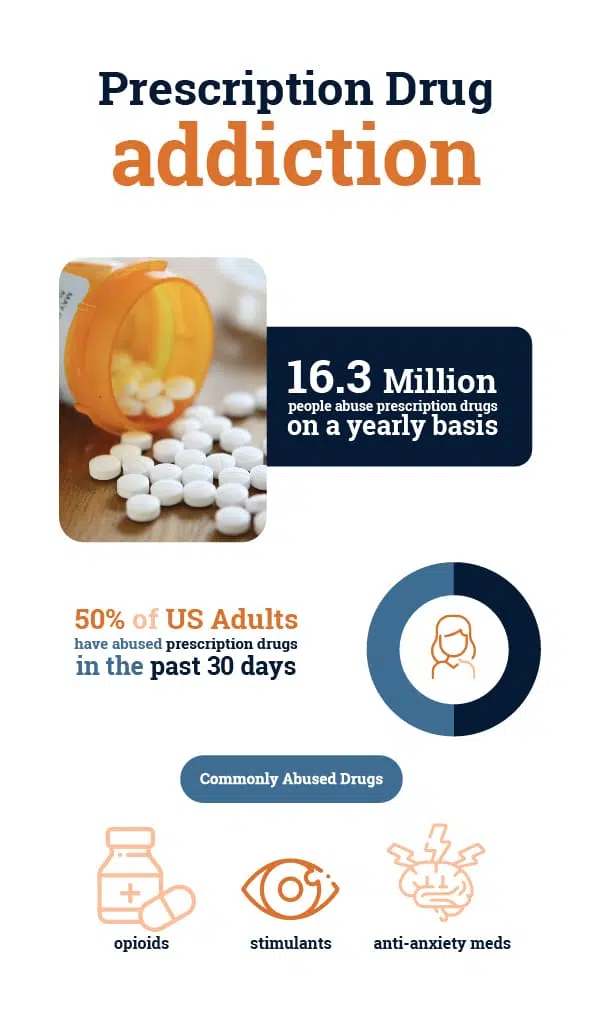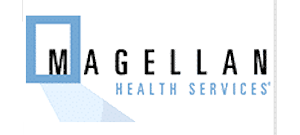Northern Illinois Recovery Center offers comprehensive, holistic outpatient treatment at our prescription drug addiction treatment center in Northern Illinois. Our certified specialists can help you move beyond the symptoms of your addiction and into recovery. Let Northern Illinois Recovery help you find a more in-depth way to recover from your prescription drug addiction.
We provide a wide range of treatments to help you find the most effective therapy depending on your particular situation. You can get the help you need from a staff that genuinely wants you to succeed. Therefore, no matter how severe your addiction or how long you have been addicted to prescription medication, there is hope for you at our prescription drug rehab center.
Any person is capable of developing an addiction to prescription medications. There is no shame in reaching out for help. At the very least, consider the following information to help you understand how abusing prescription medication can introduce many risk factors into your life.
45.8% of American adults used a prescription drug – legally or not – within the past 30 days. Healthcare specialists generally agree that a high rate of use and availability drives reported rates of prescription drug abuse, addiction, and ultimately, overdose.
16.3 million people misuse prescriptions in a year. 22.6% of them or 3.7 million people misuse prescriptions for the first time. 43.3% of first-time abusers use painkillers while 32.1% use sedatives or tranquilizers.
Our prescription drug rehab in Northern IL can assess your situation to determine your addiction’s nature and what type of treatment is suitable for your dependency. Our treatment facility offers a serene setting where you can address your addiction in a safe environment with professionals that want you to succeed. We will be there every step of the way to support you as you make your way from addiction to full recovery.


What are Commonly Abused Prescription Drugs?
Using any medication outside of the prescription from your doctor is highly dangerous. Many prescription substances are highly addictive if taken outside of your prescription.
The most commonly abused prescription medications include:
Opioids are typically prescribed to treat pain. Some common opioids are codeine, fentanyl, oxycodone (Oxycontin), Percocet, morphine, and more. Opioid abuse presents many risk factors. These drugs are incredibly addictive, which results in many people seeking out heroin when they can’t afford it or can no longer obtain a prescription.
Signs and symptoms associated with opioid abuse:
- Nausea
- Poor coordination
- Slowed breathing rate
- Confusion
- Drowsiness
- Increased tolerance leading to higher doses
- Feeling euphoric
Prescription stimulants are mainly used to treat attention deficit hyperactivity disorder (ADHD) and conditions like narcolepsy. Long-term use of stimulants can lead to several health consequences.
Prescription stimulants most commonly come in tablet or capsule form. However, people with more severe addictions may smoke, snort, or inject the drug to experience a more intense high. Some common stimulants are dextroamphetamine and amphetamine (Adderall, Mydayis), methylphenidate (Concerta, Ritalin), and dextroamphetamine (Dexedrine).
Signs and symptoms associated with stimulant abuse:
- Insomnia
- Paranoia
- Increased alertness
- High blood pressure
- Reduced appetite
- Agitation
- Anxiety
- Irregular heartbeat
- High body temperature
Anti-anxiety medication and sedative medications help people deal with anxiety and sleep disorders. Most people who become dependent on these prescription drugs start taking them for valid medical reasons. Anti-anxiety and sedative medications have high-risk factors for abuse since many individuals become dependent on them.
In many cases, people with a substance use disorder involving these medications require a detox (or weaning off process) at a prescription drug rehab. Some common prescription anti-anxiety medications include diazepam (Valium) and alprazolam (Xanax). The most common prescription sedative is zolpidem (Ambien).
Signs and symptoms associated with antianxiety and sedative abuse:
- Confusion
- Slurred speech
- Dizziness
- Drowsiness
- Slowed breathing
- Memory issues
- Poor concentration
- Unbalanced walking
Prescription Drug Addiction Rehab in Illinois
- Cognitive-behavioral therapy
- Individual & group therapy
- Dual diagnosis treatment
- Relapse prevention
- Family therapy
- Peer support
To overcome drug abuse a person must understand how society communicates about the causes and effects of addiction. Seeking addiction treatment may seem like a far-off option if the person has become too dependent on prescription drugs. Some people believe that the group therapy approach helps with understanding these lessons. Chronic pain is a common reason people misuse prescription drugs.
As they watch person after person discuss their addiction to prescription drugs, they begin to comprehend what addictive power these drugs carry. It gives the recipient more incentive and information about overcoming the urge to meditate. In other words, addiction is commonly accompanied by a mental disorder.

Inpatient Rehab
Inpatient rehab generally lasts 30 days or more, and during this time, patients receive around-the-clock care from medical and mental health professionals. This care includes detoxification, individual and group therapy, medication management, and other services. Inpatient prescription drug addiction rehab can be very expensive, but it is often covered by insurance.
Outpatient Rehab
Outpatient rehab may also include other services, such as medication-assisted treatment, which can help to reduce cravings and withdrawals. In order to be successful, it is important that the individual be committed to the program and have a strong support system. Those who complete outpatient rehab typically have a lower risk of relapsing than those who do not receive any treatment.
Insurance Verification




Dual Diagnosis Treatment
Prescription drug addiction rehab programs that offer dual diagnosis treatment can help patients recover by addressing both the mental health and addiction aspects of their condition (also known as co-occurring disorders). This often includes individual and group therapy, medication management, and other evidence-based treatments. By treating both the addiction and the underlying mental health disorder, patients can achieve lasting recovery.
Medication Management
Maintenance is when people take medication for a long period of time to keep them from relapsing. Each person’s prescription drug addiction rehab plan will be different, but all plans should include some form of medication management.


Drug Addiction Detox and Therapy Process
Keep in mind that no matter how severe your addiction is, there is always a way out. With the proper support, you can get the help you need to get off the medication and stay off. Some substance abuse treatment services that can help you with your recovery include:
- Cognitive-behavioral therapy
- Individual & group therapy
- Dual diagnosis treatment
- Relapse prevention
- Family therapy
- Peer support
Risk Factors of Prescription Drug Abuse
No one is necessarily safe from prescription drug abuse. It can happen to anyone. Some of the risk factors to keep in mind include:
- Family substance abuse history
- Easy access to prescription drugs
- Any potential or pre-diagnosed psychiatric conditions
- Peer pressure or exposure to environments with drug use
- Past or current addictions to substances like tobacco and alcohol
- Not understanding the risk factors or potential for harm with certain substances, even prescription drugs
Prescription drug abuse and addiction, in general, introduce a variety of potential consequences. These consequences can range from family and social relationships to physical consequences like car accidents. It is vital to consider each risk factor as many of them are unique to each individual. Some factors to take into account when abusing prescription medication include:
- Engaging in dangerous or risky behavior due to a lack of judgment
- Being involved in breaking the law or other crime-related issues
- The decline in work or school performance
- Losing family or friend relationships
- Car accidents

Physical and Medical Consequences
The physical and medical consequences of prescription drug abuse can be avoided if necessary steps are taken. Physical dependence can result in long-term damage to both the body and mind. Withdrawal symptoms are challenging to deal with. Detoxing or withdrawing from substances must be done in a prescription drug rehab center to stay as safe as possible. For instance, detoxing from Xanax can be incredibly dangerous and even deadly.
Prescription drug rehab centers like Northern Illinois Recovery can help you detox from any substance. We offer a safe and medically supervised program to ensure you are as comfortable and secure as possible. Following detox, our addiction specialists can help you decide which type of program will best fit your needs.
How Addiction Treatment Can Help You
The physical and medical consequences of prescription drug abuse can be avoided if necessary steps are taken. Physical dependence can result in long-term damage to both the body and mind. Withdrawal symptoms are challenging to deal with. Detoxing or withdrawing from substances must be done in a prescription drug rehab center to stay as safe as possible. For instance, detoxing from Xanax can be incredibly dangerous and even deadly.
Prescription drug rehab centers like Northern Illinois Recovery can help you detox from any substance. We offer a safe and medically supervised program to ensure you are as comfortable and secure as possible. Following detox, our addiction specialists can help you decide which type of program will best fit your needs.
You may tend to downplay your addiction to prescription drugs because you think you are still functioning just fine with it. In fact, you may be hooked on pain pills, Xanax, or other types of medication for years without realizing you are even addicted. However, the effects of these drugs can cause physical and mental health problems if you continue your addiction. Therefore, you may already be experiencing some of these effects or symptoms such as:
- High blood pressure
- Feeling tired all the time
- Inability to concentrate on any one thing
- Depression, anxiety, or wanting to be alone all the time
- Asking your doctor for a higher dosage every few months
- Uncontrollable mood swings or agitation for no apparent reason
Other signs include changes in eating or sleeping, trying to find other means for getting your hands on the pills, or seeking prescriptions from more than one doctor. If you experience two or more of these symptoms, then you may want to consider getting treatment at a prescription drug rehab in northern IL.

Get Help With Northern Illinois Recovery
If you would like to make a healthy change in your life, please feel free to reach out. We would love to help. To find out more about what treatment is available to you at Northern Illinois Recovery Center, call us today to schedule a consultation.




